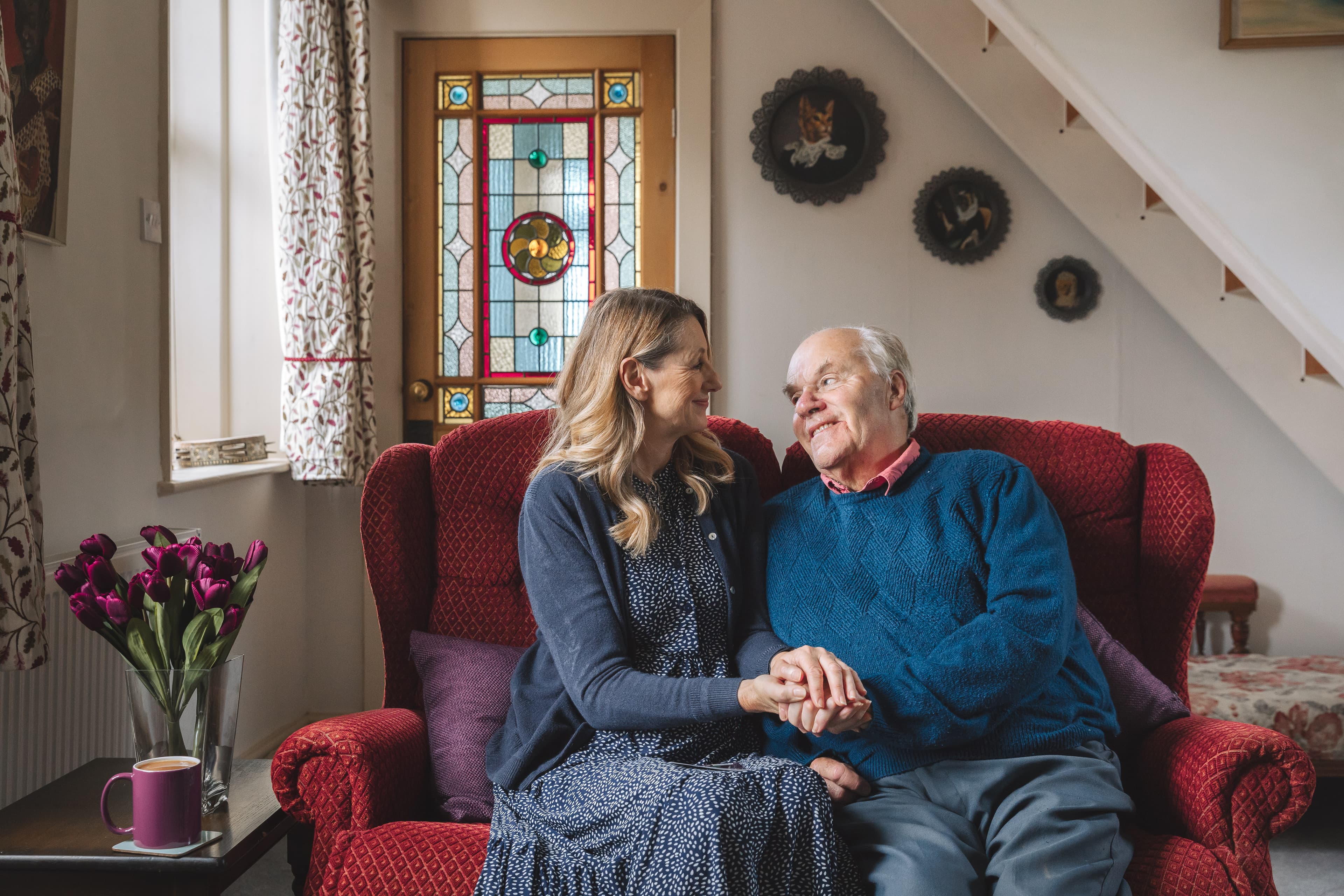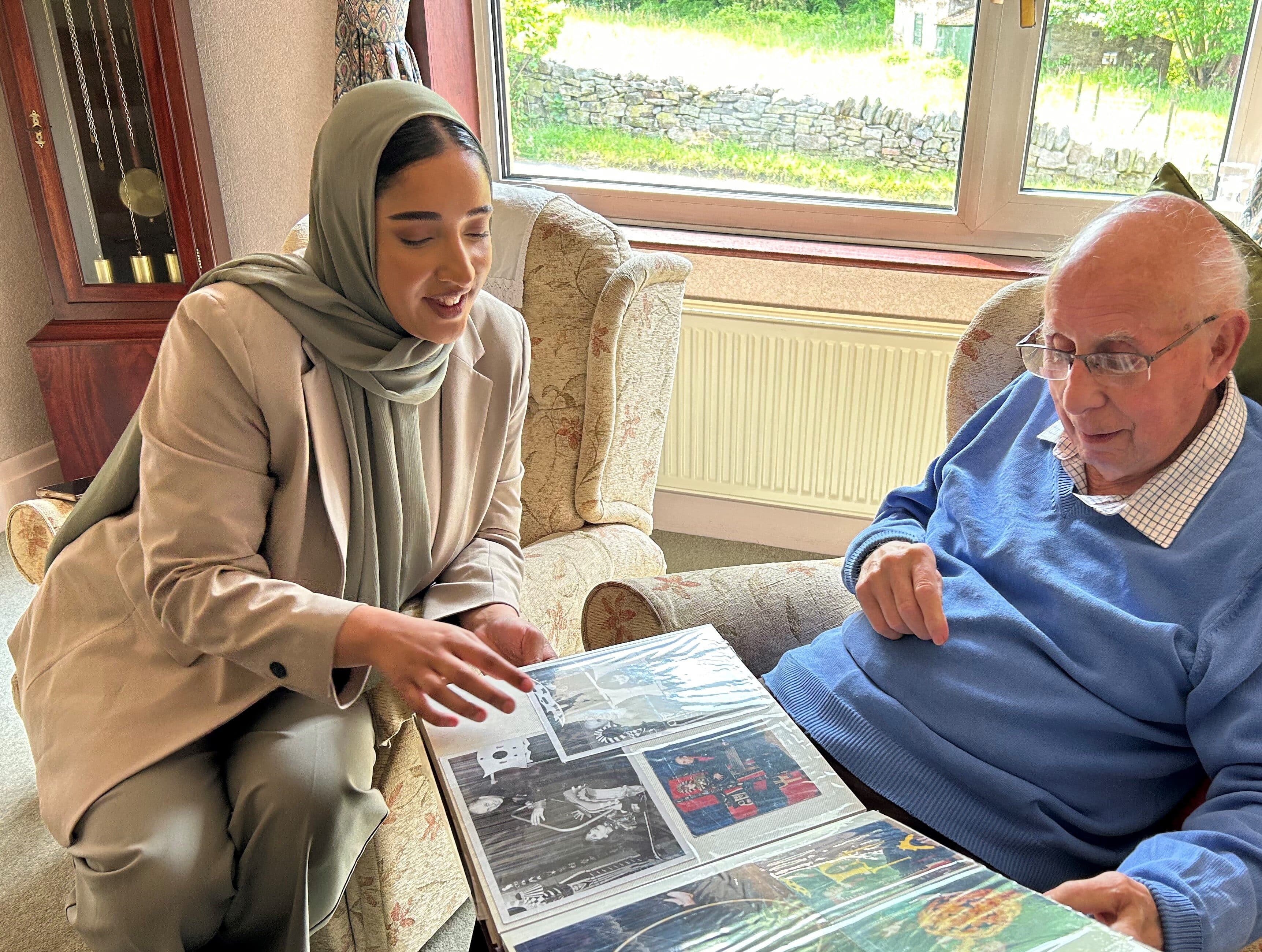
Spinal cord injury care at home
Expert spinal cord injury care at home from trusted, experienced Care Professionals who understand the unique needs and complexities of living with this type of injury.
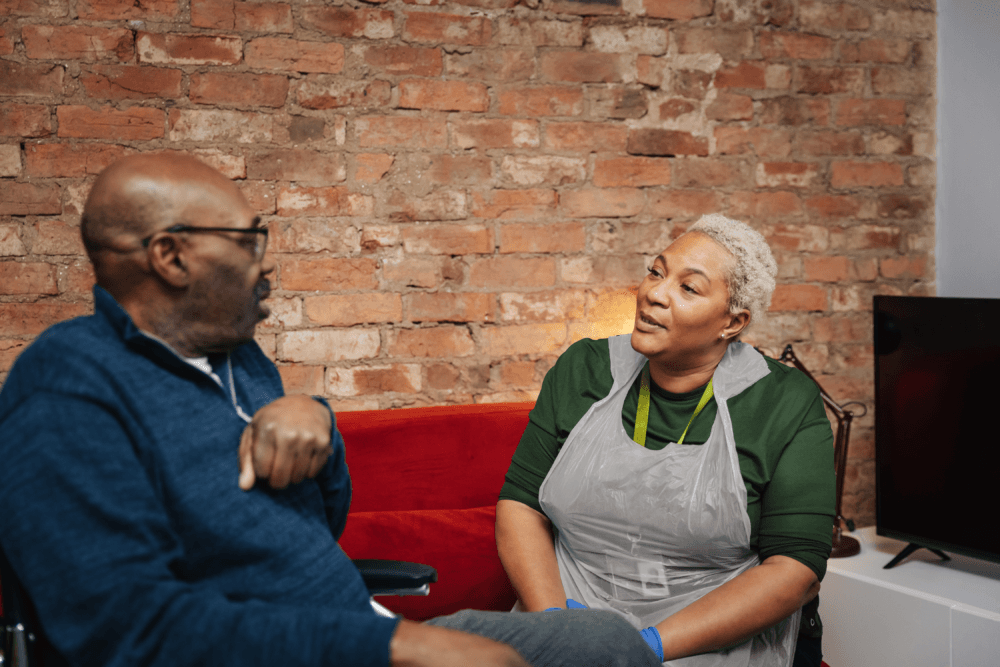
What is spinal cord injury care?
A spinal cord injury (SCI) damages the nerves in the spinal cord, disrupting the brain’s ability to send messages to certain areas of the body. This can cause temporary or permanent loss of feeling and mobility below the injury site. An estimated 50,000 people in the UK are living with a spinal cord injury, and many people require support to manage daily tasks.
The symptoms of spinal cord injury are slightly different in each individual, but could include:
- Paralysis in part of the body (paraplegia) or in all limbs (quadriplegia)
- Loss of sensation in certain areas, like hands and feet
- Pain or a feeling of pressure in the head, neck or back
- Weakness in certain areas
- Loss of bladder or bowel control
- Breathing difficulties
- Spasms or atypical movements
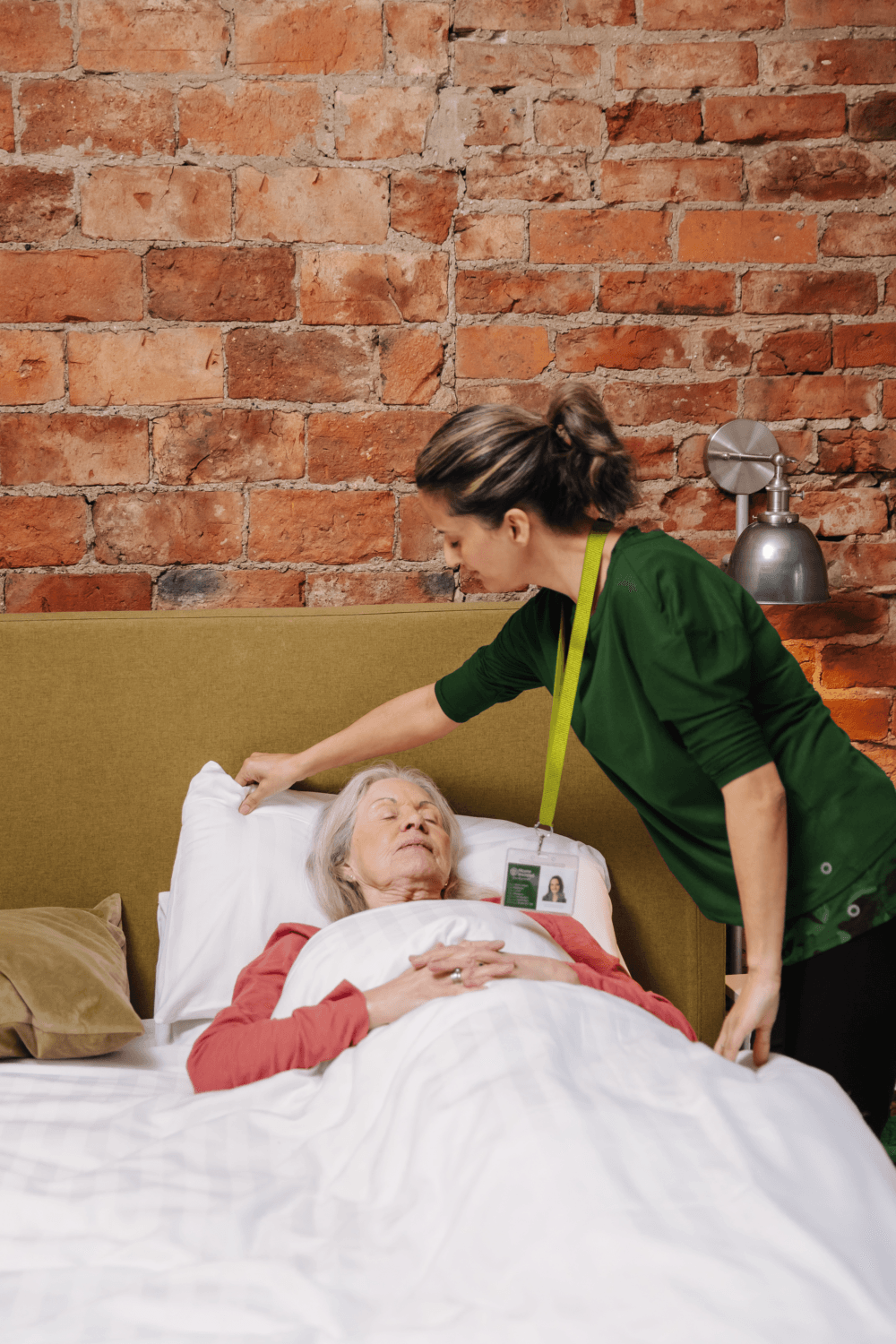
Why is spinal cord injury care at home important for older adults?
Spinal cord injury (SCI) care often requires support with care needs such as:
- Organising or travelling to physiotherapy or rehabilitation appointments
- Managing medication
- Maintaining the home and running errands
- Preparing meals
- Managing breathing issues, which affect around a third of those with SCI
- Cleaning pressure sores
- Managing pain
- Managing incontinence
It is also extremely important that caregivers looking after someone with a spinal cord injury understand the signs of autonomic dysreflexia, which causes dysregulation of the autonomic nervous system, and can be fatal. Older adults with a risk of autonomic dysreflexia may no longer have the ability to recognise the signs of this, so having care around may be more important for them.
Do I need spinal cord injury care?
Studies find those with a spinal cord injury who live alone have around a 148% higher likelihood of using home care services. Plus, life expectancy with this injury is linked to preventable secondary conditions, so dedicated care at home could help to maintain health and wellbeing for longer and improve quality of life.
Recognition of autonomic dysreflexia is a notable reason those with SCI prefer to have a knowledgable caregiver around. Home care can help to prevent this from occurring by regularly emptying the bladder or catheter, managing pain, preventing infections, and more.
If it is not clear whether you or your loved one needs spinal cord injury care, discuss this with your GP who may recommend a Care Needs Assessment.
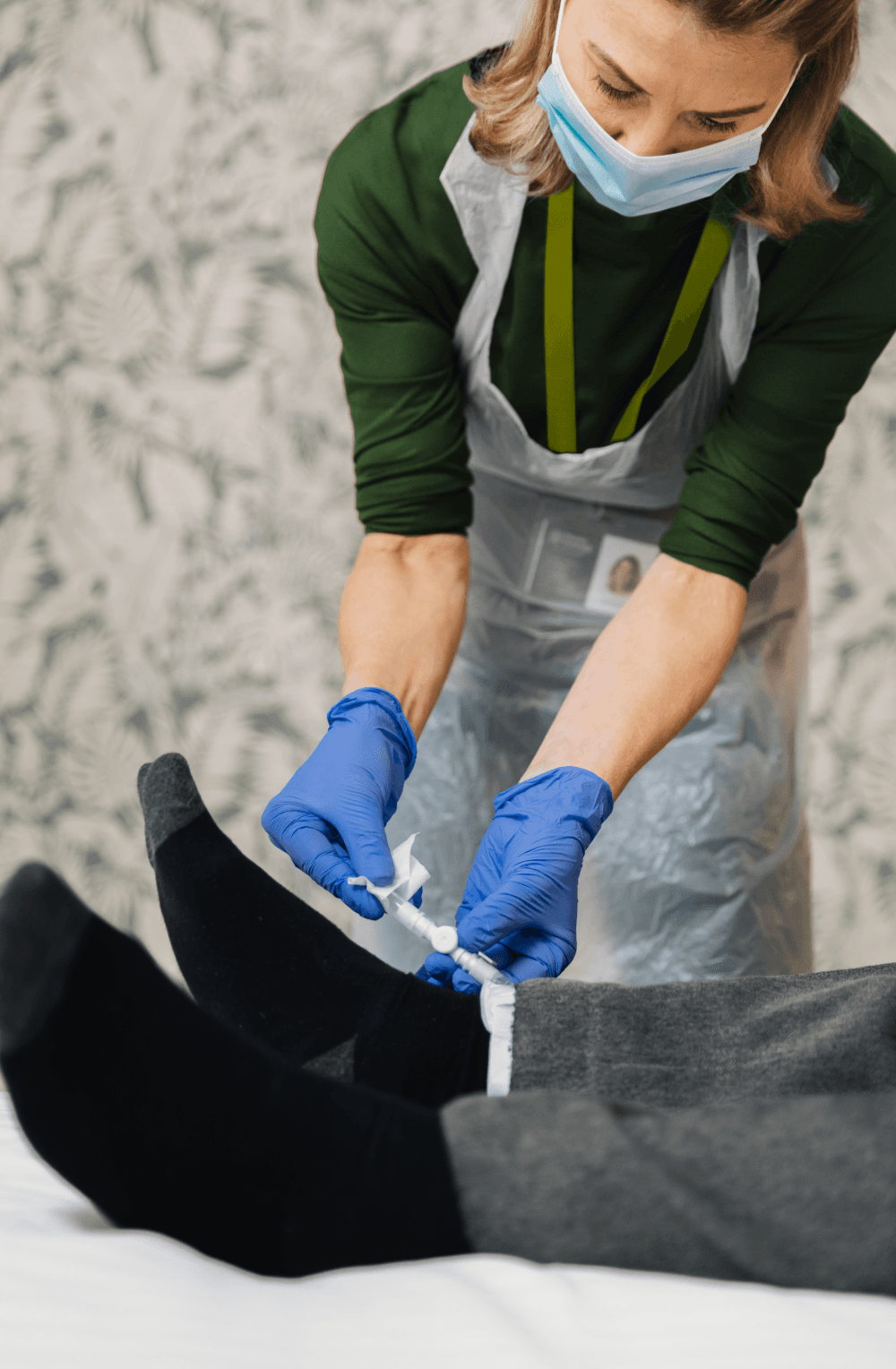
How can we help?
We've helped thousands of families to stay safe, comfortable and happy at home. Whatever situation you're facing, or whatever the question is, Home Instead is here to help.
Are you in need of a little guidance right away?
03300 583450Other non-care-related enquiries

Home Instead have an experienced caring team that far exceeds in quality anything we experienced from other agencies at this point of service.
Steve, Client
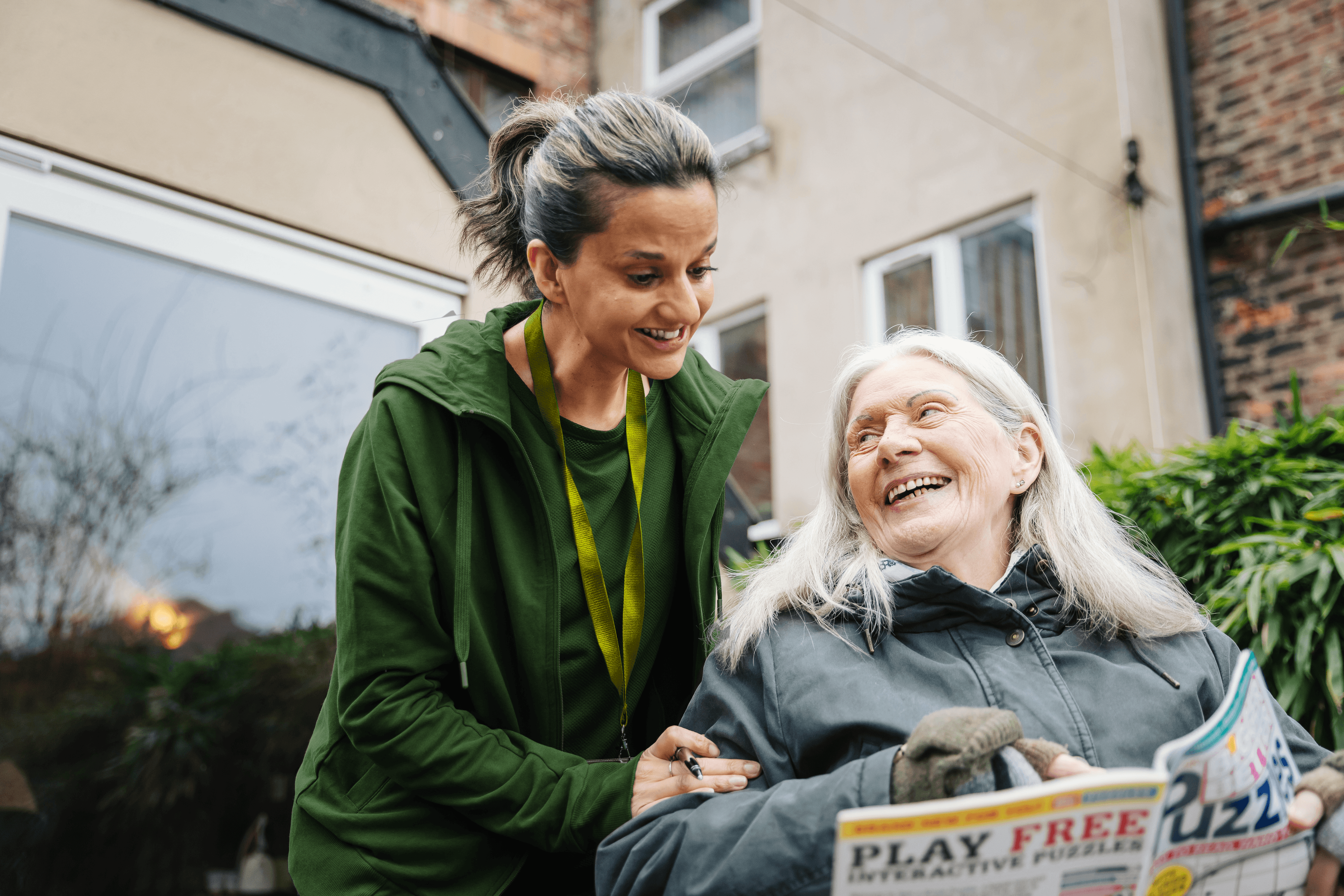
We have been relying on Home Instead for nearly five years now and they have been wonderfully helpful and flexible throughout. I don’t know what we’d do without them.
Carol, Client

Knowing that mum has caring and genuine people to help take care of her gives me peace of mind and mum looks forward to seeing the Care Professionals. Thank you for making such a big difference to both of our lives.
Rebecca, Client's Family
Get in touch today to
see how we can help
Get in touch How to get started arranging spinal cord injury care
If you or a loved one is living with a spinal cord injury, this type of care is designed to support your unique needs while also respecting the level of independence you wish to maintain in your life. Having a professional caregiver with experience in spinal cord injuries could offer you and your family peace of mind, and make everyday life less stressful so you can focus on seeing loved ones and doing the things you enjoy.
We work hard to pair every client with a Care Professional who matches their interests and personality, and understands the complexities of living with a spinal cord injury. From overnight care and respite care, to vital signs monitoring and companionship, we can provide a bespoke combination of care that works for you.
Why Home Instead?
Our trusted, trained Care Professionals can offer support for anyone living with a spinal cord injury who needs daily help and who may have a higher risk for autonomic dysreflexia.
In addition to their physical needs, we understand the need for mental health support for SCI; depression is thought to affect 19-26% of those with a spinal cord injury, which is around three times higher than in the general population, so having someone around who understands the frustrations of this injury can help to improve quality of life.
We are proudly rated 9.6 on Homecare.co.uk, with many of our locations also rated “outstanding” by the Care Quality Commission (CQC), so you can count on us to ensure you or your loved one remains safe and happy at home.
Advice & Support
FAQs
- How can home care support individuals with spinal cord injuries?
Care Professionals can assist with daily activities like bathing, dressing, and mobility. They also provide support for physical rehabilitation, medication management, and emotional well-being.
- Can home care help with mobility and transfers?
Yes, our Care Professionals are all trained to safely assist with transfers from bed to wheelchair, repositioning to prevent pressure sores, and using mobility aids to ensure comfort and safety.
- How does home care manage medical needs for spinal cord injury patients?
Care Professionals can help with catheter care, wound care, monitoring for infections, and managing medications. They also coordinate with healthcare providers to ensure the care plan is followed.
- What lifestyle support can home care provide for individuals with spinal cord injuries?
Care Professionals can assist with meal preparation, ensuring a balanced diet, and help with exercises or stretches recommended by physical therapists to maintain strength and prevent complications.
- How does home care address emotional and mental health needs?
Adjusting to life with a spinal cord injury can be challenging. Our Care Professionals provide companionship, emotional support, and encouragement, to help individuals maintain a positive outlook and quality of life.




